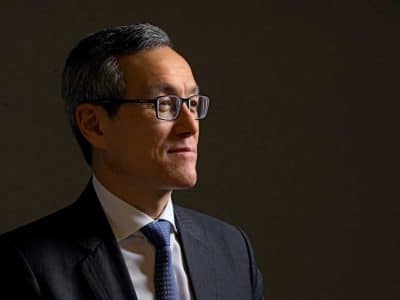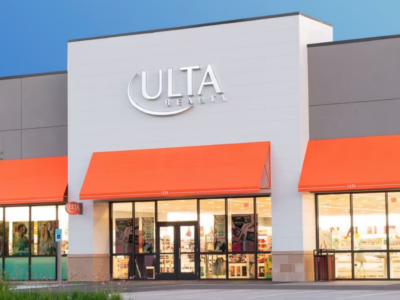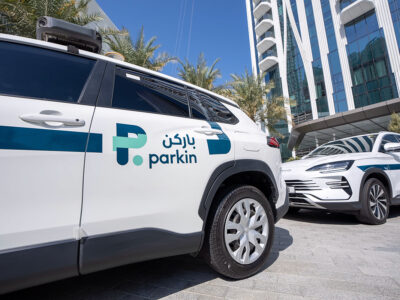The Saudi Arabian government’s investments and policy changes have turned the Kingdom into one of the leading media and broadcast markets in the Middle East.
While other Gulf countries have attracted headlines for the breakneck speed of development of their media industries, Saudi Arabia’s own broadcast landscape has been undergoing a quiet revolution.
The arrival of big-name broadcasters, glamorous film festivals and high-profile initiatives to encourage local talent have dominated the industry press over the past three years, with Qatar and the UAE at the forefront of these developments. While these activities have boosted the profile of the sector throughout the region, they are sometimes accused of being all show and no substance.
Traditionally, the main power base of Arab television was in Egypt, with Lebanon not far behind. Since then, that power has shifted towards the Gulf. Now, as the largest economy in the GCC begins to revamp its broadcast industry, the Middle East as a whole could be set to reap the benefits.
A string of statements from Saudi Arabia suggest that the country is set to take a larger role as a broadcaster and content producer, as well as transforming the services available to viewers based there.
Saudi Arabia has long been a source of investment for big hitters of Arabic TV (MBC, ART, Rotana) but now we are increasingly seeing investment turned inward, back into the Kingdom itself.
“The government’s plan to modernise and upgrade all its broadcast facilities and capabilities was proposed around six years ago and it is being implemented now,” says Walid Al Moukhtar, chairman and general manager, First Gulf Company, one of the largest system integrators in the country.
“First Gulf has been working with Saudi TV on its plans to modernise from the beginning – both on the digital broadcast network when it started and also the switchover to high definition across all the facilities. First Gulf has been working on around 90 percent of that project.”
The investment by Saudi’s Ministry of Culture and Information (MOCI) has been vast. New broadcast facilities have been built in all 13 provinces, all to a 720p specification. The MoCI has also installed a DVB-T network across the country as part of its plans.
“The change has been drastic. Saudi TV has gone from two channels to nine. The expansion of the network now means the whole Kingdom is served with digital TV.”
The rollout of the digital network is by no means the limit of the country’s investment.
“Saudi [Arabia] has taken a leadership role in terms of broadcast technology. It is the pioneer when it comes to bringing in new technology and implementing it before anybody else. The country is always at the forefront of new technology. Look at the MENOS project for example,” says Al Moukhtar referring to the Newtec, Arabsat and Arab States Broadcasting Union’s (ASBU) joint content exchange project.
In addition to state investment, the country now also benefits from private investment.
“The government has offered five licences for FM radio stations and they have brought out licences for private satellite TV stations. There is more private sector money coming in now,” says Al Moukhtar. “The five FM licences marked a big change in policy, they will be the first privately owned and operated media that is also local to Saudi Arabia. I think in the next year we will see the start of an explosion of channels serving the Saudi market. The potential is very large. The demographics of Saudi Arabia are very unique. There a lot of young people and the population as a whole is very young. That makes the sector very interesting, growth-wise.”
First Gulf Company has been operating in Saudi Arabia since its inception 10 years ago and has reaped the benefits of the Saudi Governement’s expansion of its broadcast facilities.
“Our turnover is just less than US$100 million. There are around 250 permanent employees. At any given time no less than 35 of those are working with Saudi TV in various capacities including technical support,” says Al Moukhtar.
This level of support is a key reason why the company has enjoyed so much success in the Kingdom, with Al Moukhtar admitting that it would be difficult for an overseas-based SI to match that commitment.
“Our in-house capability that has been developed over the years and our closeness with the client as well as the support, has always given us a bit of an edge. It is expensive for any SI to penetrate this market. The cost is high. First Gulf paid these costs in the beginning. There is no reason why other companies could not do the same and come into the Saudi Arabian market.”
Another veteran of the broadcast market in Saudi is Said Bacho, managing director of Harris Broadcast Middle East.
“Personally I have worked in Saudi for the past 10 years and with Harris since 2005. During this time there have been many changes in terms of transmission and also in production. On the transmission side we have seen the rollout of DVB-T. Saudi Arabia has been the leading country in the Middle East to kick-start terrestrial digital transmission,” says Bacho.
“On the production side, the main driver has been the adoption of HD. The MoCI opted for 720p in all of its new infrastructure and there are now plans to go to 1080p. Saudi TV was also the leader in terms of installing HD infrastructure.”
Bacho also points to the recent changes in policy of a government as a contributing factor to the growth of not only Harris’ interests in the country, but of the Kingdom’s broadcast and media landscape as a whole.
“These developments have only come about recently. The release of the FM licences was particularly interesting. The greater growth in the country has still come from Saudi TV however, with several thematic channels rolled-out in the past year alone,” says Bacho pointing out the private sector has only begun operating there very recently. It will grow but it won’t necessarily overshadow the government operations, which are every large. However, many people did not expect Saudi TV to grow as fast as it has so perhaps the private sector will surprise some people too.”
Bacho says he expects Saudi to continue as one of its leading markets in the EMEA region and is working to ensure it can continue to do well in the country.
“If a company does well in Saudi Arabia and it delivers on its commitments and promises in a timely manner then it is likely to get some repeat business. The catch is that any vendor must not only be proactive with its selling. It is important to engage with the customer regularly, to host workshops and roadshows and making sure a technology partnership is formed. It’s about more than selling and then running away! That is true in every market, but especially in Saudi Arabia.”






